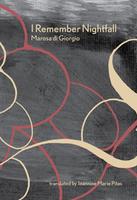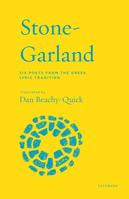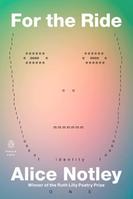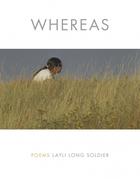 It would be only a slight exaggeration to say that I read my very first poem five months ago, on October 3, 2020--a poem from Marosa di Giorgio's scalp-tingling collection about loss, I Remember Nightfall (Ugly Duckling Presse, $20). I recall a seventh-grade textbook that featured a poem by Edna St. Vincent Millay and, later, because of the person I was dating, perhaps something by Sharon Olds. It wasn't until completing in one long go Proust's In Search of Lost Time and I asked, what could I possibly read next? that I realized what the gift of this bizarre life-long desire to resist poetry has left me with in middle age: wide-open reading country.
It would be only a slight exaggeration to say that I read my very first poem five months ago, on October 3, 2020--a poem from Marosa di Giorgio's scalp-tingling collection about loss, I Remember Nightfall (Ugly Duckling Presse, $20). I recall a seventh-grade textbook that featured a poem by Edna St. Vincent Millay and, later, because of the person I was dating, perhaps something by Sharon Olds. It wasn't until completing in one long go Proust's In Search of Lost Time and I asked, what could I possibly read next? that I realized what the gift of this bizarre life-long desire to resist poetry has left me with in middle age: wide-open reading country.
 In fact, poetry is no country, it is a multi-dimensional universe filled with the strangest magic. Some poems change meaning with each reading; others reveal secrets only when spoken aloud (or, conversely, when seen on the page). Reading from the bottom up can be as pleasurable as top to bottom, or one line at a time! Oh, and reading a poem once is like reading a poem never.
In fact, poetry is no country, it is a multi-dimensional universe filled with the strangest magic. Some poems change meaning with each reading; others reveal secrets only when spoken aloud (or, conversely, when seen on the page). Reading from the bottom up can be as pleasurable as top to bottom, or one line at a time! Oh, and reading a poem once is like reading a poem never.
 In addition to di Giorgio, books meaningful to me in recent months have included Dan Beachy-Quick's translation of six Greek poets in Stone-Garland (Milkweed, $16) and his own poetry in Arrows (Tupelo, $22.95). He taught me to suspend expectation, the key to unlocking first, Alice Notley's brain-stretching For the Ride (Penguin Books, $20) and then, whoosh, so much more.
In addition to di Giorgio, books meaningful to me in recent months have included Dan Beachy-Quick's translation of six Greek poets in Stone-Garland (Milkweed, $16) and his own poetry in Arrows (Tupelo, $22.95). He taught me to suspend expectation, the key to unlocking first, Alice Notley's brain-stretching For the Ride (Penguin Books, $20) and then, whoosh, so much more.
 Layli Long Soldier's use of past, present and the page in her Whereas (Graywolf, $16); The Collected Poems of Chika Sagawa (Modern Library, $16)--how a dozen lines can rival fireworks in the mind. And the beautiful, comforting, inspiring nihilism (really!) of Fernando Pessoa's Complete Works of Alberto Caeiro (New Directions, $18.95) or The Book of Disquiet (Penguin Books, $20)--the book I now take wherever I go, just in case.... --Neil Strandberg, director of technology and operations, Shelf Awareness
Layli Long Soldier's use of past, present and the page in her Whereas (Graywolf, $16); The Collected Poems of Chika Sagawa (Modern Library, $16)--how a dozen lines can rival fireworks in the mind. And the beautiful, comforting, inspiring nihilism (really!) of Fernando Pessoa's Complete Works of Alberto Caeiro (New Directions, $18.95) or The Book of Disquiet (Penguin Books, $20)--the book I now take wherever I go, just in case.... --Neil Strandberg, director of technology and operations, Shelf Awareness

